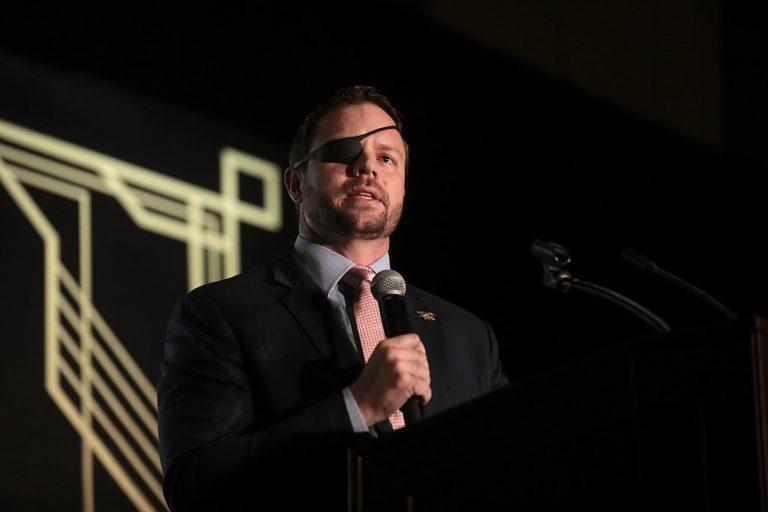
In RE: Polarization 1 I shared how Cornel West, an ardent Leftist intellectual and activist, would approach somebody with whom he had extreme political disagreement. Two examples were explored: an hypothetical KKK member and Louis Farrakhan. In both cases he would use the same approach: come out of love and seek to understand them in order to find common ground for dialog.
Here I want to show how a staunch conservative of the American variety, Luke Phillips of the Better Angels organization, lays out his radical approach to what he calls “depolarization.”
Right after Trump’s election in 2016 Better Angels formed to bring everyday Red and Blue citizens together in weekend workshops. The purpose was simple even though far from easy: to hear and understand each other more accurately. The intent of their program is pretty well summarized here. Over three years they have been quite successful in their two-fold objective: participants achieving at least a degree of respectful understanding of each other, and gaining significant insight into how each side polarizes.
Phillips identifies two key components in this approach, building social ties and reducing disgust:
Depolarization, as we at Better Angels see it, is not so much about reducing partisanship or increasing moderation, as it is about re-building social ties and relationships across partisan divides, and reducing individuals’ sense of disgust for people of opposing political opinions.
At first this seems rather okay, but then Phillips leads us into two radical implications involved in that objective: universality and “fishing out one’s subjectivity.” I had to re-read what he was saying a few times to get that he really was saying what I was reading. I’ve been a Leftist for over 50 years. For the past 40 I have worked steadily with moderate success in integrating these two principles in how I live and relate. It had never occurred to me that someone on the right could even consider the radical claims Phillips was asserting.
Universality:
…depolarization work must be in principle universal, and cannot be limited to a particular subgroup of people…It must be open to including—and this is where it gets tricky—people whose political views are so far out of the mainstream that they are not especially committed to depolarization for its own sake…To defend the American order, one must see people who implicitly or explicitly oppose that order as being members of that order, worthy of fellow citizenship and possessing the rights of American citizens…
Such phrases like “the American order” trigger me. I automatically associate it with systemic oppression. But here is a true Red radically redefining the use of that term for me. He then goes on to make sure we understand that what he is talking about has nothing to do with getting along through polite compromise:
All this can be incredibly distasteful and probably goes against one’s immediate moral sensibilities (it certainly goes against mine.) But without it, depolarization among moderate friends can be justifiably mistaken for a technocratic-centrist sort of tribalism, rather than what it really is—a radical commitment to certain principles of humanity and civility and humility, with no exceptions, even in a polarized world where we necessarily must practice a far grittier politics. [Emphasis added.]
When I finally got that he was indeed saying what I was reading, I found myself rocked back and having to take stock of myself. Am I that committed? Really? Well, yes, I am. But it was also clear—and okay—that my practice didn’t measure up and probably never would.
On to the second implication, a committed practice of self-questioning. This is how Phillips put it:
…depolarization must be radically self-aware, inner-directed first, and always self-assessing, before it critiques and condemns the polarizing tendencies of the other side. This is true both of individuals and of broader political groups.
In his article he describes an exercise used at Better Angels workshops that helps all the participants to figure out what is going unspoken and to make it explicit. He emphasizes how revealing and re-framing this self-questioning can be in a transparent setting:
…it is a format that reveals the humanity of Americans talking about politics, people with thoughts and dreams and prejudices and self-understandings and limits and blinkers to their vision, not disembodied rational minds expounding principles or computation machines calculating the costs and benefits of statements before discerning perfect and complete solutions and statements.
That’s such a beautiful statement of what radical acceptance of people—without necessarily accepting their thinking or behavior—is about.
Humorously he lets us know that he knows how out-of-the-box this principle is:
This realization and acceptance of subjectivity and personal limitedness is, to put it mildly, not really our national culture’s go-to mode of public engagement. It is not even in sync with America’s general trends of self-understanding.
For me, putting both principles together—universality and self-questioning—embraces what I call transformative politics. It is a politics asserting that personal and social transformation are inseparable, something that was a major discovery for Carol Gilligan and Naomi Snider in their new book, Why Does Patriarchy Persist? And for me, Phillips is providing a bridge across a chasm I had accepted as a fact of life. I don’t know if the Better Angels organization is as far out-of-the-box as Phillips is, but his voice is powerful enough to reach across that chasm.

Add new comment